Contemporary theologians and AI
There are many scholars and thinkers across different religious traditions who are engaging with the topic of AI and its implications for theology and religious practices, and their contributions are helping to shape important discussions about the ethical, moral, and philosophical implications of this emerging technology.
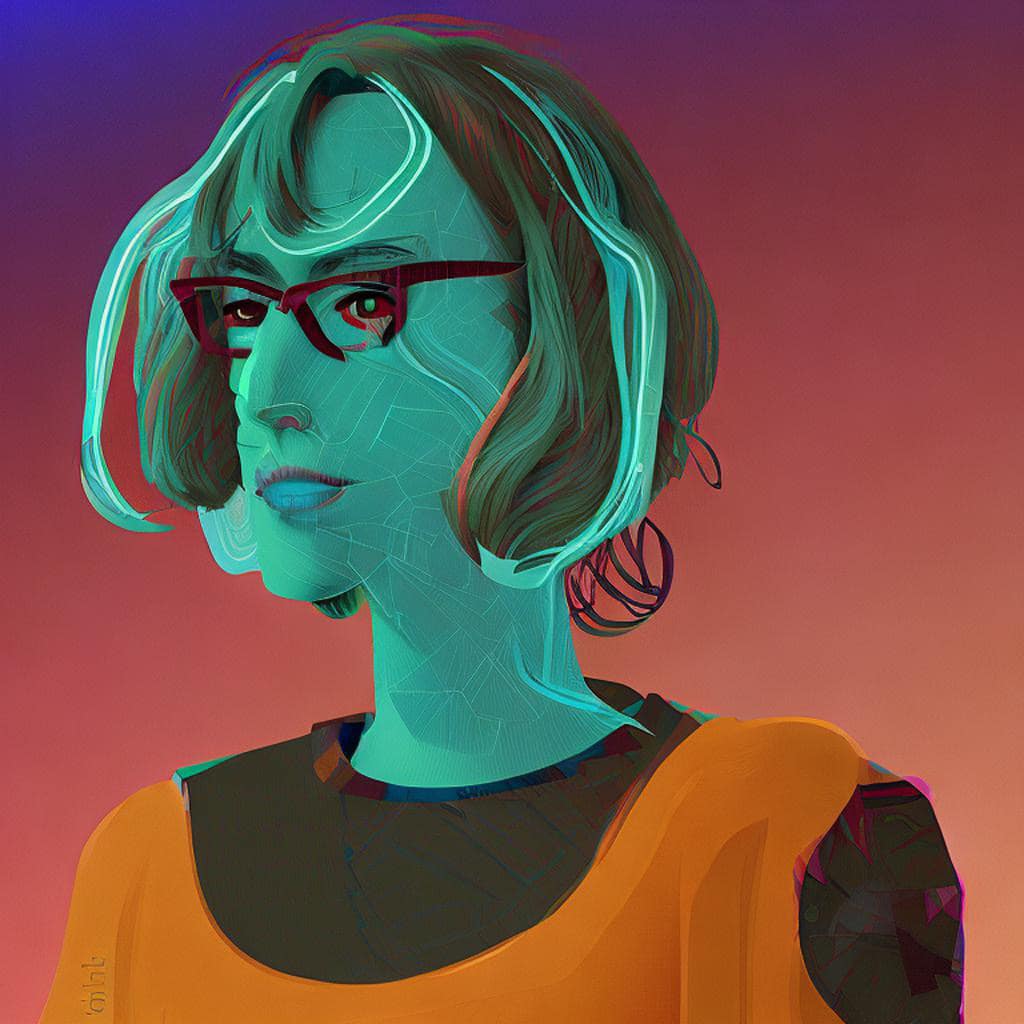
Contemporary theologians and scholars who are actively engaged in the intersection between AI and theology
- Dr. John C. Lennox: Dr. Lennox is a mathematician, philosopher, and theologian who has written extensively on the relationship between science, technology, and religion. He has written several books on the topic, including “2084: Artificial Intelligence and the Future of Humanity.”
- Dr. Christopher Benek: Dr. Benek is a pastor and theologian who has written extensively on the relationship between religion and technology. He is particularly interested in the ethical implications of AI, and has spoken and written about the potential for AI to enhance religious experiences and practices.
- Dr. Beth Singler: Dr. Singler is a researcher and writer who specializes in the social and ethical implications of AI. She has written extensively on the relationship between religion and AI, and is particularly interested in the impact of AI on religious beliefs and practices.
- Dr. Michael Burdett: Dr. Burdett is a theologian who specializes in the intersection between technology, culture, and religion. He has written extensively on the ethical implications of AI, particularly with regard to questions of agency, responsibility, and accountability.
- Dr. Noreen Herzfeld: Dr. Herzfeld is a theologian who specializes in the relationship between religion and technology. She has written extensively on the ethical implications of AI, particularly with regard to questions of human identity and the role of technology in shaping human nature.
These theologians and scholars are actively engaged in exploring the intersection between AI and theology, and are contributing important insights and perspectives on the ethical, moral, and philosophical implications of this emerging technology.

Catholic theologians who are actively engaged in the intersection between AI and theology
Within the Catholic Church, there are also theologians who are engaging with the topic of AI and its implications for theology and religious practices. Some notable Catholic theologians who have written on this topic include:
- Fr. Paolo Benanti: Fr. Benanti is a Jesuit priest and theologian who teaches at the Pontifical Gregorian University in Rome. He has written extensively on the relationship between AI and ethics, particularly with regard to the potential impact of AI on human dignity and the common good.
- Dr. Philipp Hildmann: Dr. Hildmann is a theologian and ethicist who specializes in the intersection between technology and religion. He has written on the ethical implications of AI, particularly with regard to the role of technology in shaping human nature and the relationship between AI and the human person.
- Dr. Kevin Flannery: Dr. Flannery is a philosopher and theologian who teaches at the Pontifical Gregorian University in Rome. He has written on the ethical implications of AI, particularly with regard to the relationship between AI and human responsibility.
- Fr. Antonio Spadaro: Fr. Spadaro is a Jesuit priest and theologian who is the editor-in-chief of the Jesuit journal La Civiltà Cattolica. He has written on the relationship between AI and theology, particularly with regard to the potential impact of AI on the human person and the role of religion in shaping our understanding of technology.
These Catholic theologians and scholars are engaged in exploring the implications of AI for theology and religious practices from a Catholic perspective, taking into account the teachings of the Catholic Church on ethics, morality, and social justice.
Protestant theologians and scholars who are actively engaged in the intersection between AI and theology
Within Protestant Christianity, there are also theologians who are engaging with the topic of AI and its implications for theology and religious practices. Some notable Protestant theologians who have written on this topic include:
- Dr. Michael Burgos: Dr. Burgos is a theologian who teaches at Southeastern Baptist Theological Seminary. He has written on the implications of AI for Christian ethics, particularly with regard to the relationship between AI and human dignity.
- Dr. Ted Peters: Dr. Peters is a Lutheran theologian who teaches at Pacific Lutheran Theological Seminary. He has written on the theological implications of AI, particularly with regard to the impact of AI on the relationship between humans and God.
- Dr. Brent Waters: Dr. Waters is a Presbyterian theologian who teaches at Garrett-Evangelical Theological Seminary. He has written on the ethical implications of AI, particularly with regard to the impact of AI on the concept of human agency and the relationship between humans and technology.
- Dr. John R. Franke: Dr. Franke is a Reformed theologian who teaches at Yellowstone Theological Institute. He has written on the theological implications of AI, particularly with regard to the impact of AI on the concept of human identity and the relationship between humans and the natural world.
These Protestant theologians and scholars are engaged in exploring the implications of AI for theology and religious practices from a Protestant perspective, taking into account the teachings of the Protestant tradition on ethics, morality, and social justice.

Anglican theologians and scholars who are actively engaged in the intersection between AI and theology
Within the Anglican Communion, there are also theologians who are engaging with the topic of AI and its implications for theology and religious practices. Some notable Anglican theologians who have written on this topic include:
- Dr. Stephen Backhouse: Dr. Backhouse is a theologian who teaches at St. Mellitus College in London. He has written on the ethical implications of AI, particularly with regard to the impact of AI on human agency and responsibility.
- Dr. Michael Burdett: Dr. Burdett is a theologian who teaches at the University of Oxford. He has written on the relationship between technology, culture, and religion, particularly with regard to the impact of AI on the human person and the natural world.
- Dr. Sam Wells: Dr. Wells is a theologian who teaches at Duke Divinity School. He has written on the ethical implications of AI, particularly with regard to the impact of AI on social justice and the common good.
- The Rev. Dr. Malcolm Brown: The Rev. Dr. Brown is the Director of Mission and Public Affairs for the Church of England. He has written on the theological implications of AI, particularly with regard to the impact of AI on human identity and the relationship between humans and technology.
These Anglican theologians and scholars are engaged in exploring the implications of AI for theology and religious practices from an Anglican perspective, taking into account the teachings of the Anglican tradition on ethics, morality, and social justice.
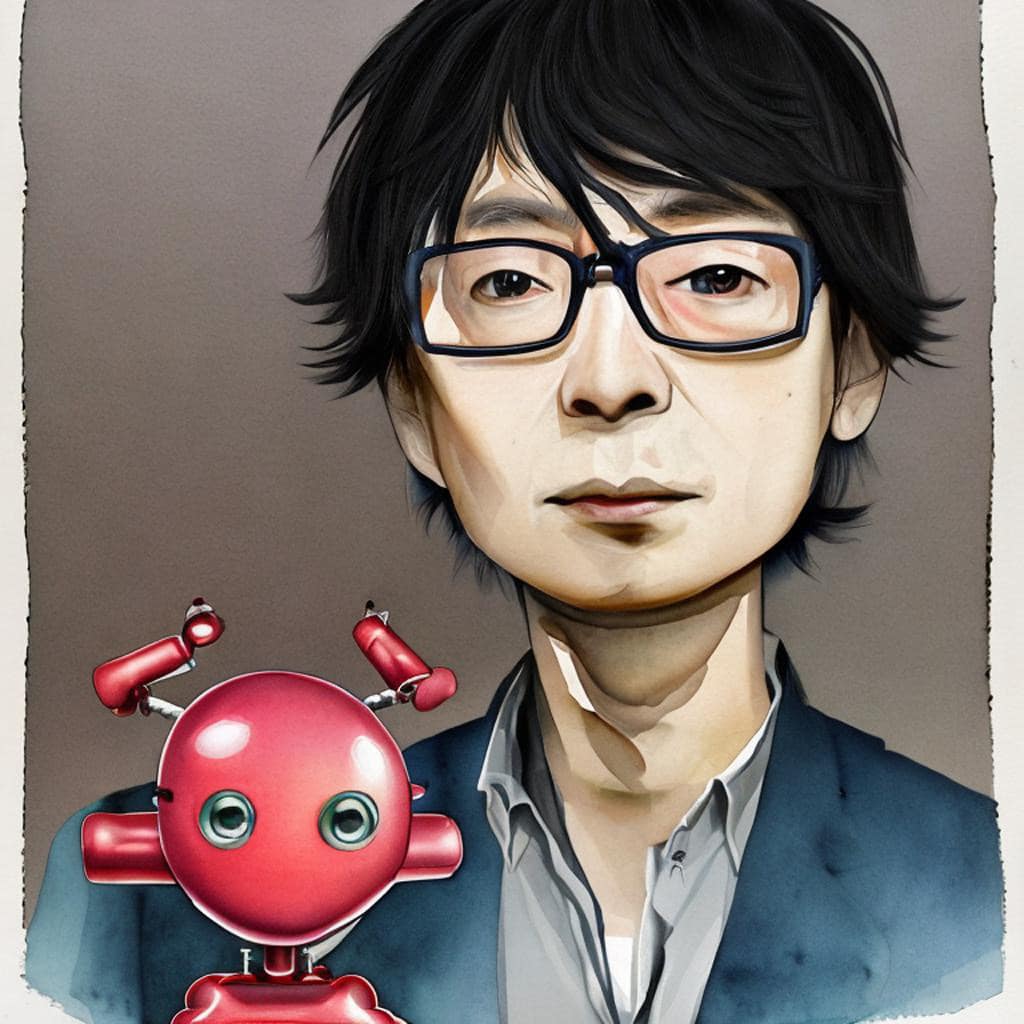
Budhists scholars and thinkers who are actively engaged in the intersection between AI and theology
Within Buddhism, there are also scholars and thinkers who are engaging with the topic of AI and its implications for Buddhist philosophy and practice. Some notable Buddhist scholars and thinkers who have written on this topic include:
- Dr. Hiroshi Ishiguro: Dr. Ishiguro is a roboticist and Buddhist scholar who has developed humanoid robots that are designed to interact with humans. He has written on the relationship between Buddhism and AI, particularly with regard to the concept of consciousness and the potential for AI to enhance Buddhist meditation and mindfulness practices.
- Dr. Daniel Veidlinger: Dr. Veidlinger is a Buddhist studies scholar who has written on the ethical implications of AI, particularly with regard to the impact of AI on Buddhist concepts of compassion and non-harm.
- Dr. Ken Goldberg: Dr. Goldberg is a roboticist and Buddhist who has written on the relationship between Buddhism and AI, particularly with regard to the potential for AI to enhance Buddhist practices such as meditation and compassion training.
- Dr. David Loy: Dr. Loy is a Buddhist philosopher who has written on the ethical implications of AI, particularly with regard to the impact of AI on Buddhist teachings on interconnectedness and the nature of self.
These scholars and thinkers are exploring the potential implications of AI for Buddhist philosophy and practice, taking into account the teachings and values of Buddhism on ethics, morality, and social justice.
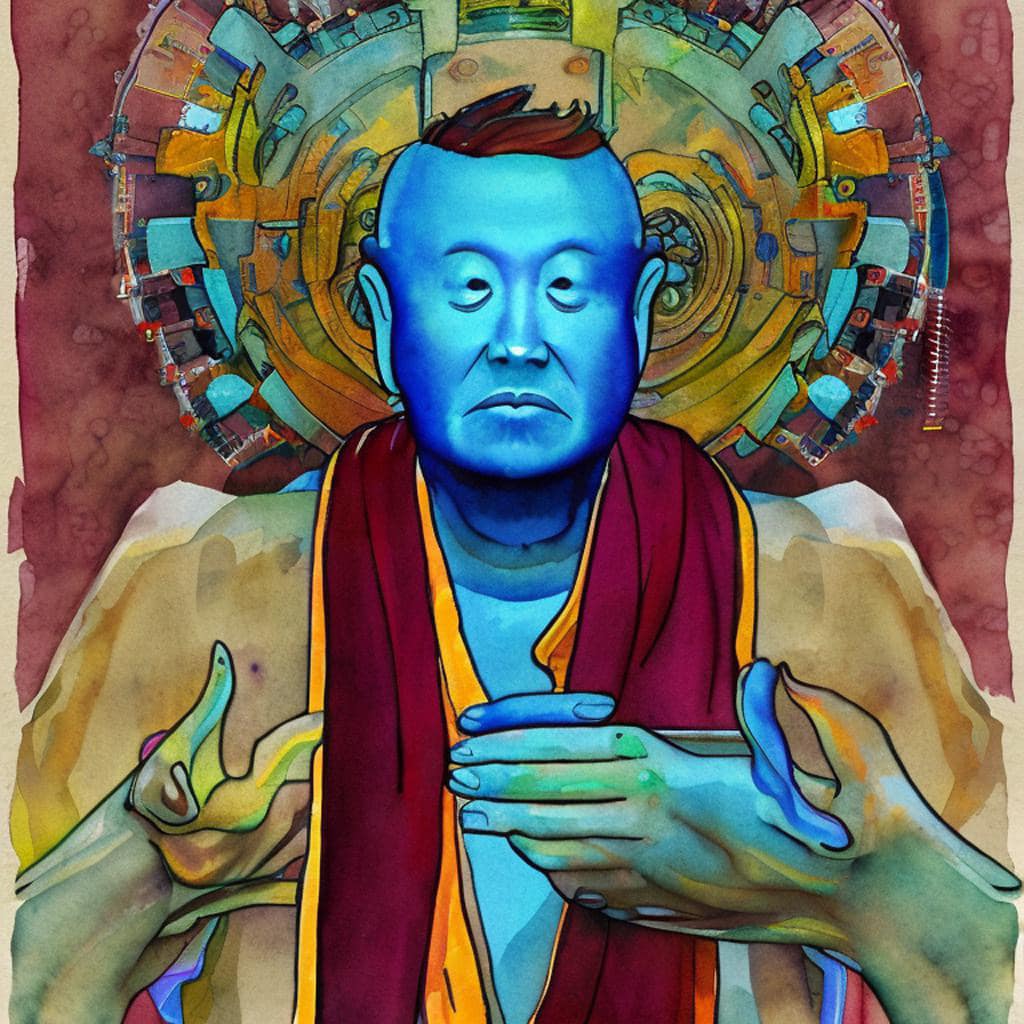
Hindu scholars and thinkers who are actively engaged in the intersection between AI and theology
Within Hinduism, there are also scholars and thinkers who are engaging with the topic of AI and its implications for Hindu philosophy and practice. Some notable Hindu scholars and thinkers who have written on this topic include:
- Dr. Ananda Shankar Jayant: Dr. Jayant is a Bharatanatyam dancer, choreographer, and scholar who has written on the relationship between Hinduism and AI. She has explored the potential for AI to enhance traditional Indian arts and cultural practices, such as dance and music.
- Dr. Subhash Kak: Dr. Kak is a computer scientist, philosopher, and Hindu scholar who has written on the relationship between Hinduism and AI. He has explored the potential for AI to enhance traditional Indian knowledge systems, such as Ayurveda and Vedic astrology.
- Dr. Nishant Shah: Dr. Shah is a philosopher and media studies scholar who has written on the relationship between Hinduism and AI. He has explored the potential for AI to impact Hindu concepts of karma, dharma, and the nature of consciousness.
- Dr. S. Kalyanaraman: Dr. Kalyanaraman is an Indologist and scholar who has written on the relationship between Hinduism and AI. He has explored the potential for AI to impact Hindu concepts of ethics, morality, and social justice.
These scholars and thinkers are exploring the potential implications of AI for Hindu philosophy and practice, taking into account the teachings and values of Hinduism on ethics, morality, and social justice.

Taoism
Within Taoism, there are also scholars and thinkers who are engaging with the topic of AI and its implications for Taoist philosophy and practice. While there may not be as many specific scholars on this topic as in other religions, some notable Taoist principles that may be relevant to discussions of AI include:
- Wu Wei (non-doing): This principle emphasizes the importance of acting in accordance with the natural flow of the universe, rather than forcing outcomes through human action. From a perspective of AI, this could potentially lead to reflections on the role of humans in the development and use of AI, and whether AI aligns with the principle of wu wei.
- Yin and Yang: This principle emphasizes the importance of balance and harmony between opposing forces, such as light and dark or male and female. From a perspective of AI, this could potentially lead to reflections on the potential impact of AI on the balance and harmony of the natural world and human societies.
- Qi (life force energy): This principle emphasizes the importance of maintaining a healthy balance of qi in the body and in the environment. From a perspective of AI, this could potentially lead to reflections on the impact of AI on human health and wellbeing, and whether AI aligns with the principle of maintaining a healthy balance of qi.
While there may not be as many specific scholars on the topic of AI and Taoism, Taoist principles can provide a lens through which to explore the potential implications of AI for Taoist philosophy and practice, particularly with regard to the relationship between humans and technology and the impact of technology on the natural world.
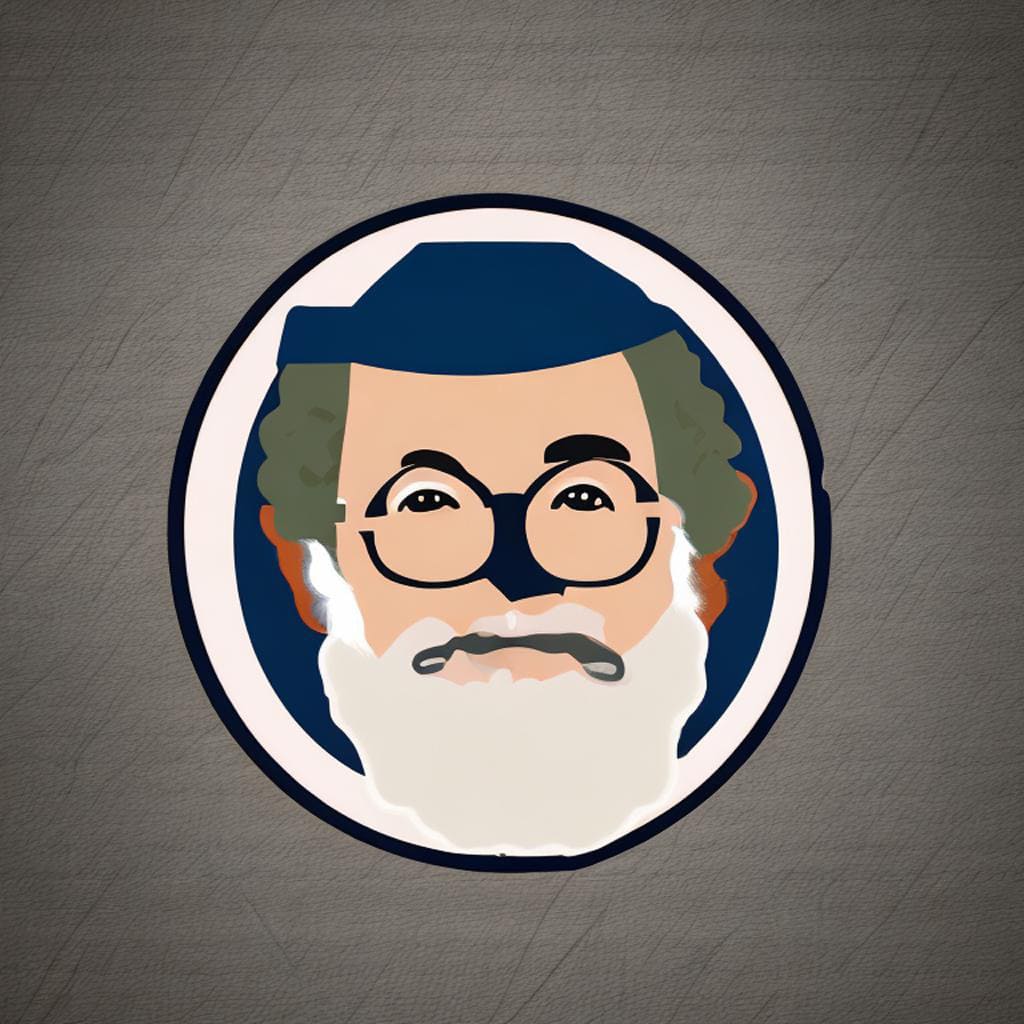
Jewish theologians and scholars engaged in the intersection between AI and theology
Within Judaism, there are also theologians who are engaging with the topic of AI and its implications for Jewish philosophy and practice. Some notable Jewish theologians who have written on this topic include:
- Rabbi Jason Weiner: Rabbi Weiner is a hospital chaplain and bioethicist who has written on the ethical implications of AI, particularly with regard to the impact of AI on healthcare and medical decision-making.
- Rabbi Jonathan Sacks (z”l): The late Rabbi Sacks was a philosopher and scholar who wrote on the relationship between religion and technology. He explored the impact of technology on human identity and relationships, and reflected on the role of religion in shaping our understanding of technology.
- Dr. Daniel Schiff: Dr. Schiff is a rabbi and ethicist who has written on the relationship between Judaism and AI. He has explored the potential for AI to enhance Jewish ritual and practice, and has reflected on the ethical implications of AI in light of Jewish teachings on social justice and the common good.
- Rabbi Michael Bernstein-Kamins: Rabbi Bernstein-Kamins is a philosopher and scholar who has written on the relationship between Judaism and AI. He has explored the potential for AI to enhance Jewish learning and scholarship, and has reflected on the ethical implications of AI in light of Jewish teachings on human dignity and responsibility.
These Jewish theologians and scholars are engaging with the topic of AI from a Jewish perspective, drawing on Jewish teachings and values to explore the potential implications of AI for Jewish philosophy and practice.

Scholars and thinkers within Islam on the topic of AI
Within Islam, there are also scholars and thinkers who are engaging with the topic of AI and its implications for Islamic philosophy and practice. Some notable Muslim scholars and thinkers who have written on this topic include:
- Dr. Omar S. Ashour: Dr. Ashour is a political scientist and Islamic scholar who has written on the ethical implications of AI, particularly with regard to the impact of AI on human rights and democracy.
- Dr. Mohammed Ghaly: Dr. Ghaly is a bioethicist and Islamic scholar who has written on the relationship between Islam and AI. He has explored the potential for AI to enhance Islamic bioethics, and has reflected on the ethical implications of AI in light of Islamic teachings on social justice and the common good.
- Dr. Noura Al Moubayed: Dr. Al Moubayed is a computer scientist and Islamic scholar who has written on the relationship between Islam and AI. She has explored the potential for AI to enhance Islamic education and scholarship, and has reflected on the ethical implications of AI in light of Islamic teachings on human dignity and responsibility.
- Dr. Mehmet Fatih Uslu: Dr. Uslu is a computer scientist and Islamic scholar who has written on the relationship between Islam and AI. He has explored the potential for AI to enhance Islamic finance and business practices, and has reflected on the ethical implications of AI in light of Islamic teachings on economic justice and fairness.
These scholars and thinkers are exploring the potential implications of AI for Islamic philosophy and practice, taking into account the teachings and values of Islam on ethics, morality, and social justice.
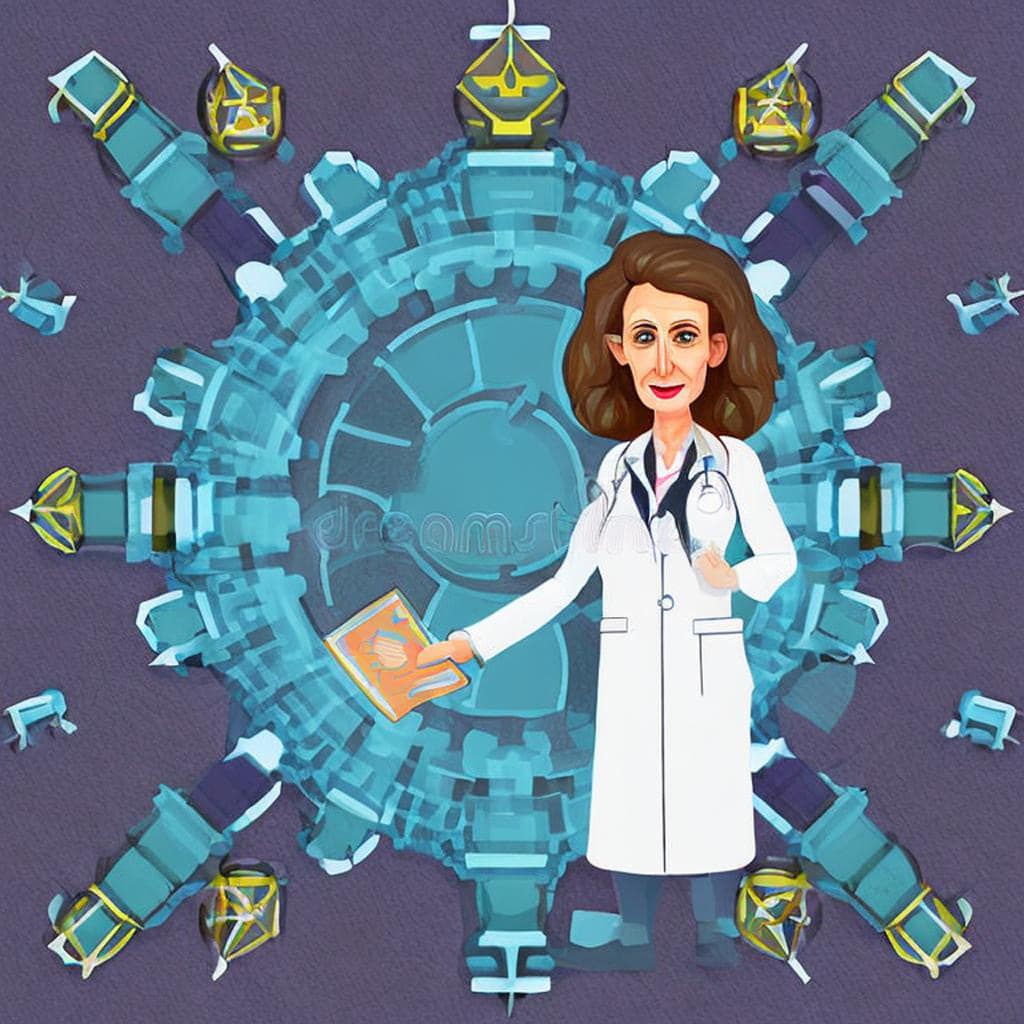
Table with some contemporary theologians, thinkers and scholars, their religion, viewpoints, keywords and points of actions related to their work on AI
| Theologian | Religion | Viewpoint | Keywords | Points of Action |
| Dr. John C. Cavadini | Catholic | Ethical and anthropological implications of AI | Human dignity, Common good | Reflection and teaching on AI in Catholic institutions |
| Dr. Susan Barreto | Catholic | Ethical and social implications of AI | Human dignity, Social justice | Call for ethical guidelines and public discussion of AI |
| Fr. Paolo Benanti | Catholic | Ethical implications of AI | Human dignity, Common good | Reflection and teaching on the ethical implications of AI |
| Dr. Michael Burgos | Protestant | Ethical implications of AI | Human dignity | Reflection and teaching on the ethical implications of AI |
| Dr. Ted Peters | Protestant | Theological implications of AI | Relationship between humans and God | Reflection on the theological implications of AI |
| Dr. Brent Waters | Protestant | Ethical implications of AI | Human agency, Relationship between humans and technology | Reflection and teaching on the ethical implications of AI |
| Dr. Stephen Backhouse | Anglican | Ethical implications of AI | Human agency and responsibility | Reflection and teaching on the ethical implications of AI |
| Dr. Michael Burdett | Anglican | Theological implications of AI | Impact of AI on human person and natural world | Reflection on the theological implications of AI |
| Dr. Sam Wells | Anglican | Ethical implications of AI | Social justice, Common good | Reflection and teaching on the ethical implications of AI |
| The Rev. Dr. Malcolm Brown | Anglican | Theological implications of AI | Human identity, Relationship between humans and technology | Reflection on the theological implications of AI |
| Dr. Ananda Shankar Jayant | Hindu | Cultural implications of AI | Enhancement of traditional Indian arts and practices | Exploration of the potential for AI to enhance cultural practices |
| Dr. Subhash Kak | Hindu | Knowledge implications of AI | Enhancement of traditional Indian knowledge systems | Exploration of the potential for AI to enhance traditional Indian knowledge systems |
| Dr. Nishant Shah | Hindu | Philosophical implications of AI | Impact of AI on concepts of karma, dharma, and consciousness | Reflection on the impact of AI on Hindu philosophy |
| Dr. S. Kalyanaraman | Hindu | Ethical implications of AI | Impact of AI on ethics and morality | Reflection and teaching on the ethical implications of AI |
| Rabbi Jason Weiner | Jewish | Ethical implications of AI | Impact of AI on healthcare and medical decision-making | Reflection and teaching on the ethical implications of AI |
| Rabbi Jonathan Sacks (z”l) | Jewish | Philosophical implications of technology | Impact of technology on human identity and relationships | Reflection on the impact of technology on human identity |
| Dr. Daniel Schiff | Jewish | Ethical implications of AI | Potential for AI to enhance Jewish ritual and practice | Reflection and teaching on the ethical implications of AI |
| Rabbi Michael Bernstein-Kamins | Jewish | Philosophical implications of AI | Potential for AI to enhance Jewish learning and scholarship | Reflection on the impact of AI on Jewish philosophy |
| Dr. Omar S. Ashour | Muslim | Ethical implications of AI | Impact of AI on human rights and democracy | Reflection and teaching on the ethical implications of AI |
| Dr. Mohammed Ghaly | Muslim | Ethical implications of AI | Impact of AI on Islamic bioethics | Reflection and teaching on the ethical implications of AI |
| Dr. Noura Al Moubayed | Muslim | Philosophical implications of AI | Impact of AI on |
There are many scholars and thinkers across different religious traditions who are engaging with the topic of AI and its implications for theology and religious practices, and their contributions are helping to shape important discussions about the ethical, moral, and philosophical implications of this emerging technology.
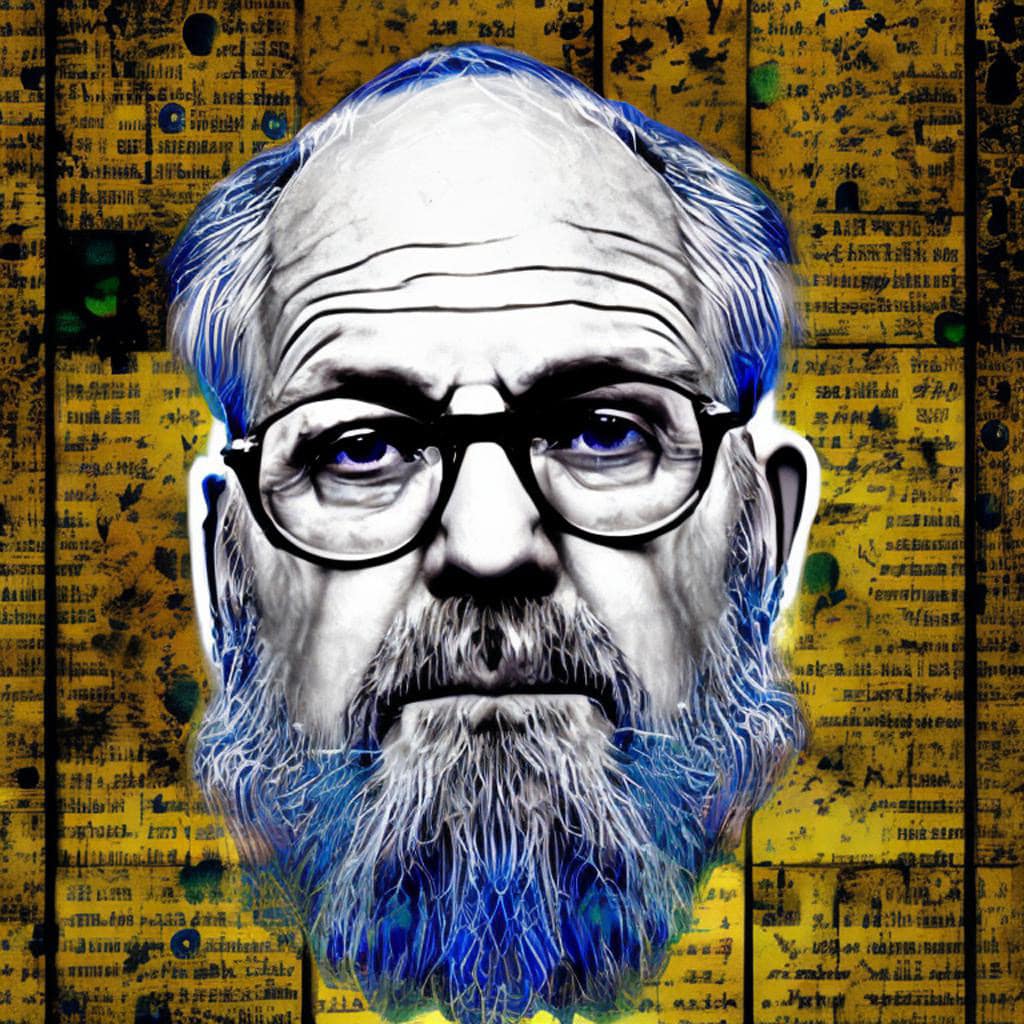
Table summarizing the areas where those contemporary theologians, thinkers and scholars agree and disagree on the topic of AI
| Topic | Areas of Agreement | Areas of Disagreement |
| Ethical Implications | – Importance of ethical reflection and discussion of AI – Need for guidelines to ensure ethical use of AI | – Specific ethical questions, such as the extent of AI’s autonomy and responsibility |
| Theological Implications | – Potential impact of AI on human identity and relationships – Need for reflection on the theological implications of AI | – The extent to which AI can truly replicate or challenge human consciousness |
| Cultural Implications | – Potential for AI to enhance cultural practices | – The extent to which AI could replace or detract from traditional cultural practices |
| Knowledge Implications | – Potential for AI to enhance traditional knowledge systems | – The extent to which AI could replace or detract from traditional knowledge systems |
| Social Justice Implications | – Need to consider the impact of AI on social justice and the common good | – The extent to which AI could exacerbate existing inequalities |
| Relationship Between Humans and Technology | – Need for reflection on the relationship between humans and technology | – The extent to which AI could challenge or complement human agency and responsibility |
It is worth noting that these theologians represent a wide range of perspectives and that there may be areas of agreement and disagreement that are not fully captured by this table. However, this table provides a high-level summary of some of the key areas of agreement and disagreement among these theologians on the topic of AI.
Shop tip
Contemporary theologians and AI On Amazon
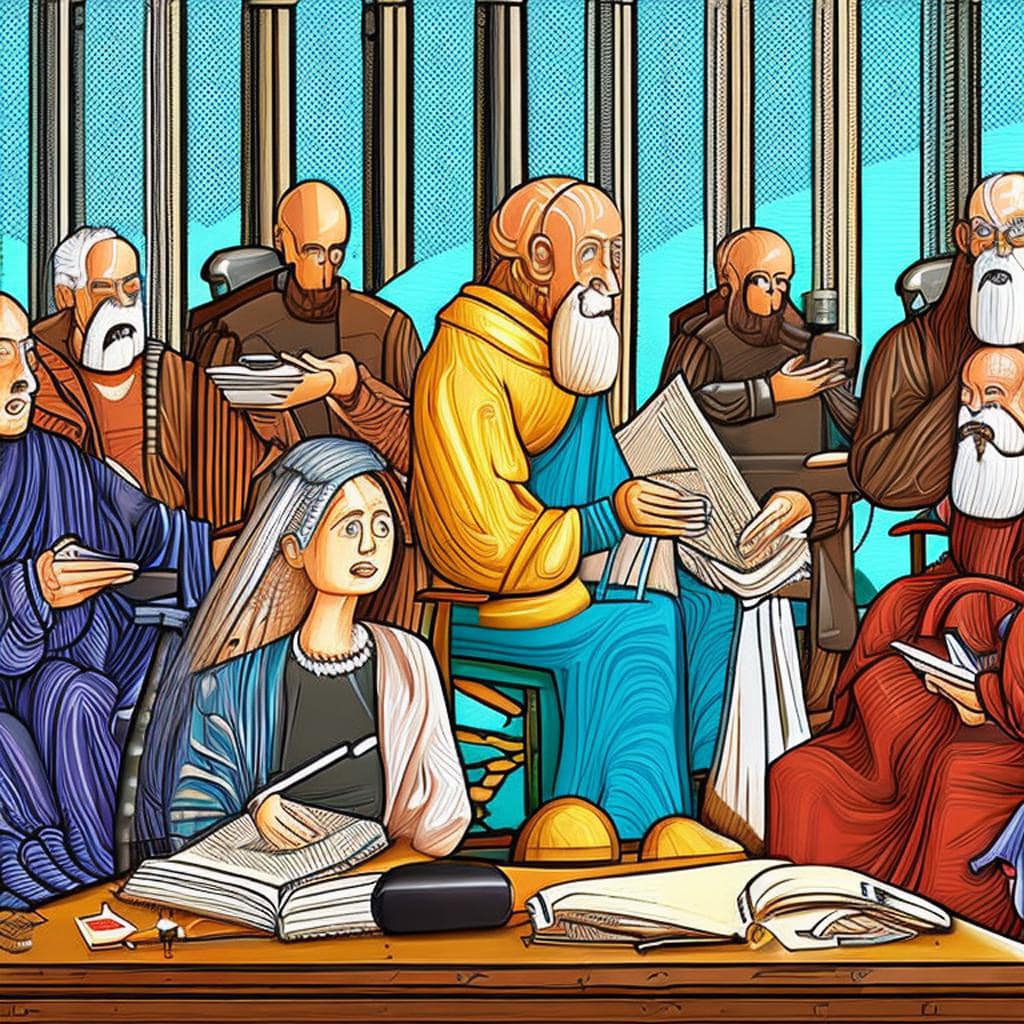
Text with help of openAI’s ChatGPT Laguage Models & Fleeky – Images with help of Picsart & MIB
Thank you for questions, shares and comments!
Share your thoughts or questions in the comments below!






